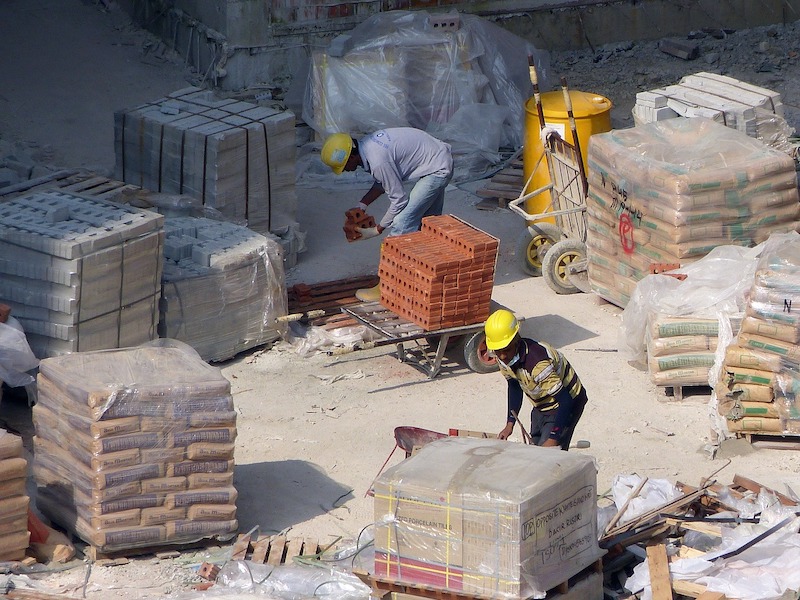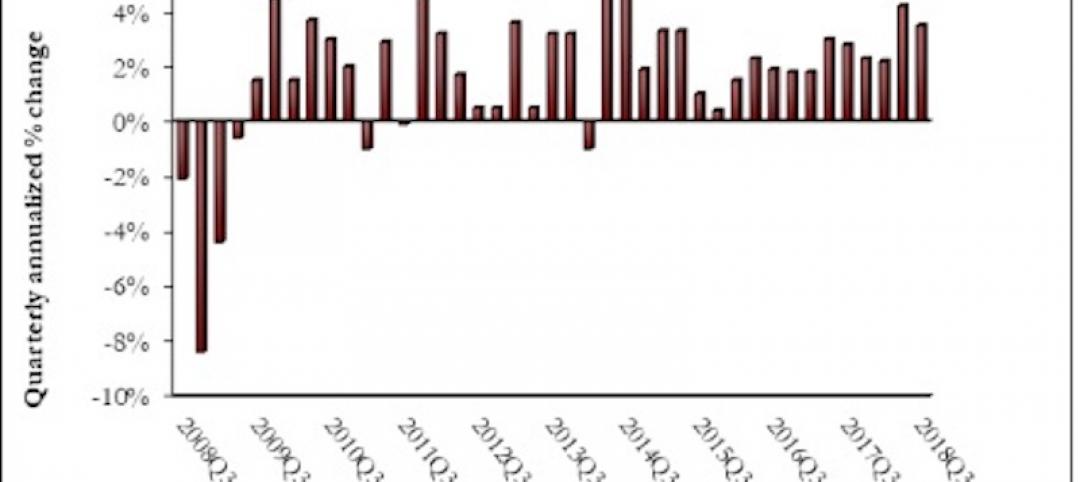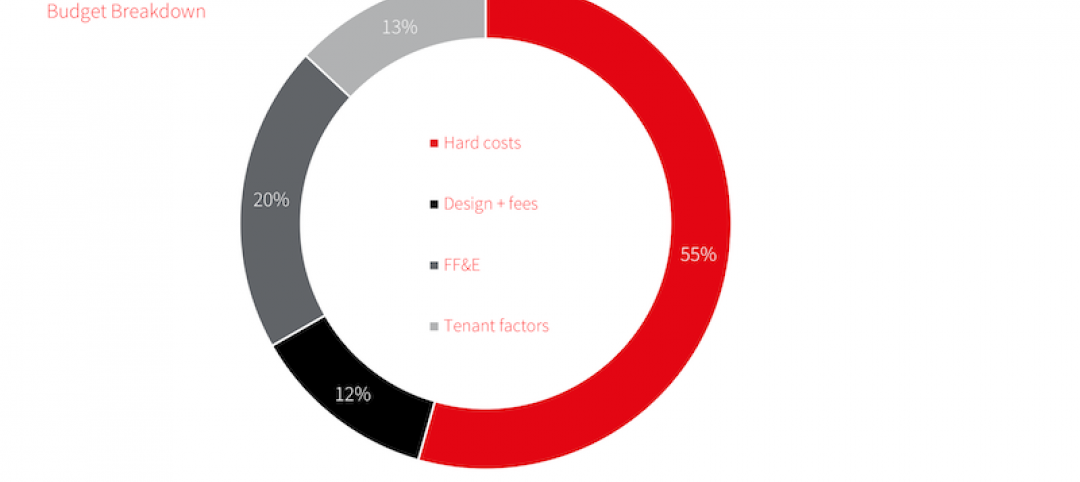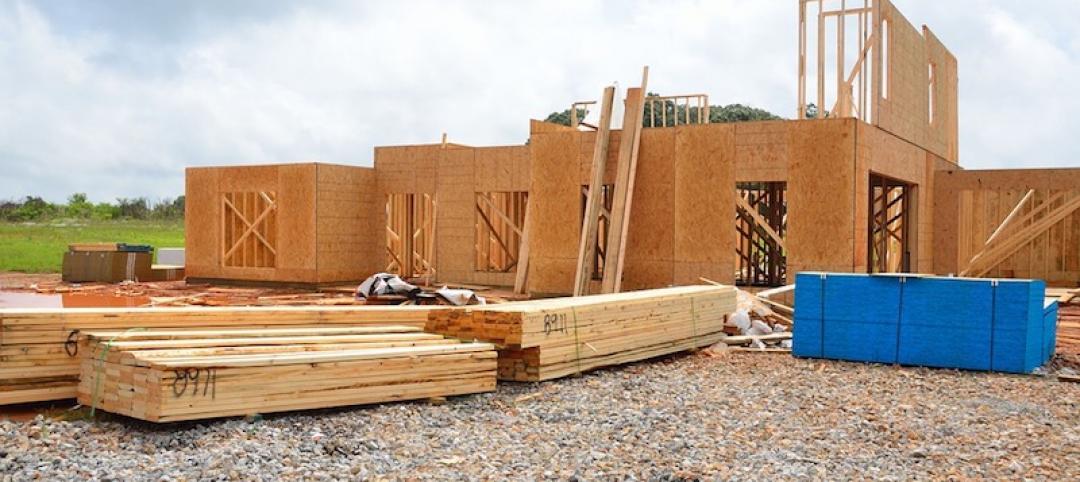Construction employment was unchanged from March to April as nonresidential contractors and homebuilders alike struggled to obtain materials and find enough workers, according to an analysis by the Associated General Contractors of America of government data released today. Association officials said the industry’s recovery was being hampered by problems getting stable prices and reliable deliveries of key materials, while the pandemic and federal policies were making it harder for firms to find workers to hire.
“Contractors are experiencing unprecedented intensity and range of cost increases, supply-chain disruptions, and worker shortages that have kept firms from increasing their workforces,” said Ken Simonson, the association’s chief economist. “These challenges will make it difficult for contractors to rebound as the pandemic appears to wane.”
Construction employment in April totaled 7,452,000, matching the March total but amounting to 196,000 employees or 2.6% below the most recent peak in February 2020. The number of former construction workers who were unemployed in April, 768,000, dropped by half from a year ago and the sector’s unemployment rate fell from 16.6% in April 2020 to 7.7% last month.
“The fact that employment has stalled—despite strong demand for new homes, remodeling of all types, and selected categories of nonresidential projects—suggests that contractors can’t get either the materials or the workers they need,” Simonson added. The economist noted that many firms report key materials are backlogged or rationed, while others report they are having a hard time getting former workers to return to work. He added these factors are contributing to rising costs for many contractors, which are details in the association’s updated Construction Inflation Alert.
Although employment was nearly stagnant for the month for both residential and nonresidential construction, the sectors differ sharply in their recovery since the pre-pandemic peak in February 2020. Residential construction firms—contractors working on new housing, additions, and remodeling—gained only 3,000 employees during the month but have added 46,000 workers or 1.6% over 14 months. The nonresidential sector—comprising nonresidential building, specialty trades, and heavy and civil engineering contractors—shed 3,000 jobs in April and employed 242,000 fewer workers or 5.2% less than in February 2020.
Association officials said that the temporary new federal unemployment supplements appear to be keeping some people from returning to work, while others are being forced to care for dependents not yet back in school or day care, or loved ones afflicted with the coronavirus. They added that federal tariffs and labor shortages within the shipping and manufacturing sector are a major reason for the rising materials prices and supply chain problems.
“Ironically, the latest coronavirus relief bill may actually be holding back economic growth by keeping people away from work at a time when demand is rebounding,” said Stephen E. Sandherr, the association’s chief executive officer. “Federal officials need to look at ways to encourage people to return to work, end damaging tariffs on materials like steel and lumber, and act to ease shipping delays and backlogs.”
Related Stories
Market Data | Nov 2, 2018
Nonresidential spending retains momentum in September, up 8.9% year over year
Total nonresidential spending stood at $767.1 billion on a seasonally adjusted, annualized rate in September.
Market Data | Oct 30, 2018
Construction projects planned and ongoing by world’s megacities valued at $4.2trn
The report states that Dubai tops the list with total project values amounting to US$374.2bn.
Market Data | Oct 26, 2018
Nonresidential fixed investment returns to earth in Q3
Despite the broader economic growth, fixed investment inched 0.3% lower in the third quarter.
Market Data | Oct 24, 2018
Architecture firm billings slow but remain positive in September
Billings growth slows but is stable across sectors.
Market Data | Oct 19, 2018
New York’s five-year construction spending boom could be slowing over the next two years
Nonresidential building could still add more than 90 million sf through 2020.
Market Data | Oct 8, 2018
Global construction set to rise to US$12.9 trillion by 2022, driven by Asia Pacific, Africa and the Middle East
The pace of global construction growth is set to improve slightly to 3.7% between 2019 and 2020.
Market Data | Sep 25, 2018
Contractors remain upbeat in Q2, according to ABC’s latest Construction Confidence Index
More than three in four construction firms expect that sales will continue to rise over the next six months, while three in five expect higher profit margins.
Market Data | Sep 24, 2018
Hotel construction pipeline reaches record highs
There are 5,988 projects/1,133,017 rooms currently under construction worldwide.
Market Data | Sep 21, 2018
JLL fit out report portrays a hot but tenant-favorable office market
This year’s analysis draws from 2,800 projects.
Market Data | Sep 21, 2018
Mid-year forecast: No end in sight for growth cycle
The AIA Consensus Construction Forecast is projecting 4.7% growth in nonresidential construction spending in 2018.

















